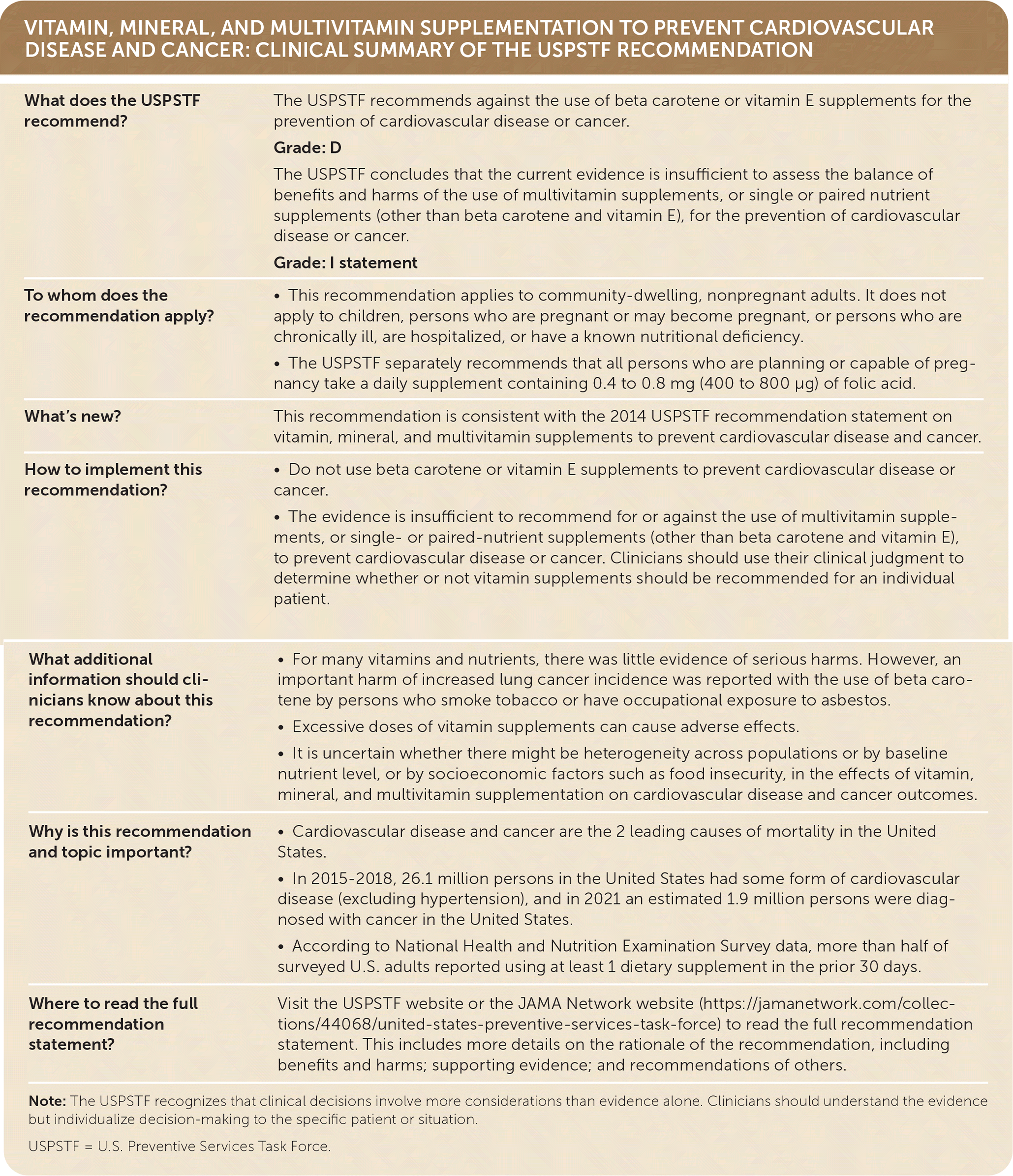
Am Fam Physician. 2022;106(5):online
Related Putting Prevention Into Practice: Vitamin, Mineral, and Multivitamin Supplementation to Prevent Cardiovascular Disease and Cancer
As published by the USPSTF.

| What does the USPSTF recommend? | The USPSTF recommends against the use of beta carotene or vitamin E supplements for the prevention of cardiovascular disease or cancer. Grade: D The USPSTF concludes that the current evidence is insufficient to assess the balance of benefits and harms of the use of multivitamin supplements, or single or paired nutrient supplements (other than beta carotene and vitamin E), for the prevention of cardiovascular disease or cancer. Grade: I statement |
| To whom does the recommendation apply? |
|
| What’s new? | This recommendation is consistent with the 2014 USPSTF recommendation statement on vitamin, mineral, and multivitamin supplements to prevent cardiovascular disease and cancer. |
| How to implement this recommendation? |
|
| What additional information should clinicians know about this recommendation? |
|
| Why is this recommendation and topic important? |
|
| Where to read the full recommendation statement? | Visit the USPSTF website or the JAMA Network website (https://jamanetwork.com/collections/44068/united-states-preventive-services-task-force) to read the full recommendation statement. This includes more details on the rationale of the recommendation, including benefits and harms; supporting evidence; and recommendations of others. |
The full recommendation statement is available at https://www.uspreventiveservicestaskforce.org/uspstf/recommendation/vitamin-supplementation-to-prevent-cvd-and-cancer-preventive-medication.
The USPSTF recommendations are independent of the U.S. government. They do not represent the views of the Agency for Healthcare Research and Quality, the U.S. Department of Health and Human Services, or the U.S. Public Health Service.
